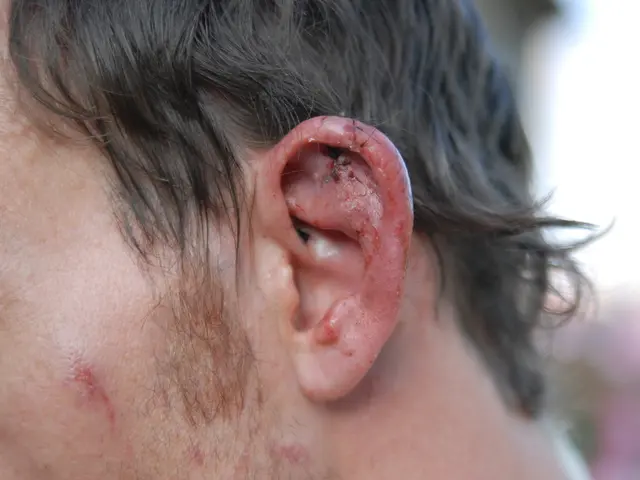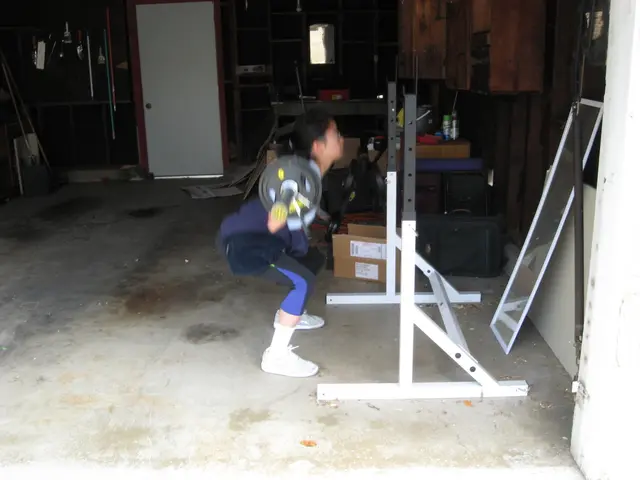Lawsuit Accuses Lincare of Negligence Resulting in Fatalities
Here's a freshened up, informal, and streamlined version of the article:
Lawsuit Accuses Lincare of Negligence After a Deadly Delay in BiPAP Replacement
Lincare, the big-time respiratory device supplier, is back in the legal hot seat. This time, they're being sued over the death of a 27-year-old man with Down syndrome who depended on a BiPAP machine to breathe at night. The lawsuit alleges Lincare's negligence led to his demise.
Sharon Vernor, LeQuon's mother, is filing the suit against Lincare, claiming they didn't act fast enough when his machine broke down. LeQuon, who had severe obstructive sleep apnea, lived with his mother in Madison, Illinois. He'd been using the BiPAP machine since 2015, and without it, he struggled to breathe at night.
On September 11, 2020, the machine started making a loud noise and stopped working. Sharon called Lincare right away, explaining the urgency, but they told her the machine was five years old and required a new prescription for replacement. They purportedly reached out to his doctor's office the same day, but got no immediate response. Sharon was instructed to unplug the machine for 30 minutes, and told a respiratory therapist would follow up. No one did.
For the next week, LeQuon faced sleeping difficulties. On September 18, when a nurse called to say she'd deliver a new machine later that day, it was too late. He was already dead, with fluid in his lungs. The BiPAP machine sat useless on the dresser nearby.
The autopsy revealed complications from sleep apnea contributed to his death. Sharon is suing Lincare and Washington University, which took two days to send the new prescription after receiving it. The suit claims Lincare put profits before patient care, failing to provide a loaner machine even though it was clear LeQuon was at risk. Lincare insists they followed regulations and had no clue his condition was life-threatening.
Lincare, which earns $2.4 billion annually, has faced legal trouble before. Customers have complained of broken and dirty equipment, lengthy service delays, and aggressive collection tactics. Some former employees have alleged the company discouraged the use of loaner devices, even discarding them rather than providing them to patients. Despite these claims, Lincare maintains it adheres to regulations and offers top-notch care.
A judge recently allowed Sharon's legal team to seek punitive damages, suggesting Lincare may have displayed reckless disregard for patient safety. In depositions, a Lincare manager admitted the company should have instructed Sharon to take her son to an emergency room if his condition was critical. The outcome of the case could have far-reaching implications for how companies like Lincare handle equipment failures for vulnerable patients.
Medical experts emphasize the importance of continuous BiPAP use for patients with severe sleep apnea, as skipping even a single night could lead to dire consequences. The case shed light on Lincare's handling of equipment breakdowns and the impacts on patients. The trial is set to have substantial ramifications for the disease management sector moving forward.
Sources:- "What a Wrongful Death Lawsuit Reveals About America's Largest Oxygen Provider"- "Oxygen-Device Provider Faces Lawsuit Over Customer's Death"- "How the nation's largest oxygen distributor became a multibillion-dollar Medicare scofflaw"
- The lawsuit against Lincare highlights the potential consequences of medical-condition management companies prioritizing profits over patient care, specifically in conditions like chronic diseases and respiratory conditions that require regular and continuous treatments, such as sleep apnea.
- In light of this case, it is crucial for fitness and exercise, health and wellness professionals, and the public to be aware of the risks associated with delays in replacement of life-saving devices like BiPAP machines, and the potential impact on the vulnerable patient population.
- As scientific advancements continue to uncover the complexities of human health, it is imperative for medical-condition management companies to prioritize patient care, including providing loaner devices or immediate replacements in emergency situations, to minimize the risks and prevent tragic outcomes.






